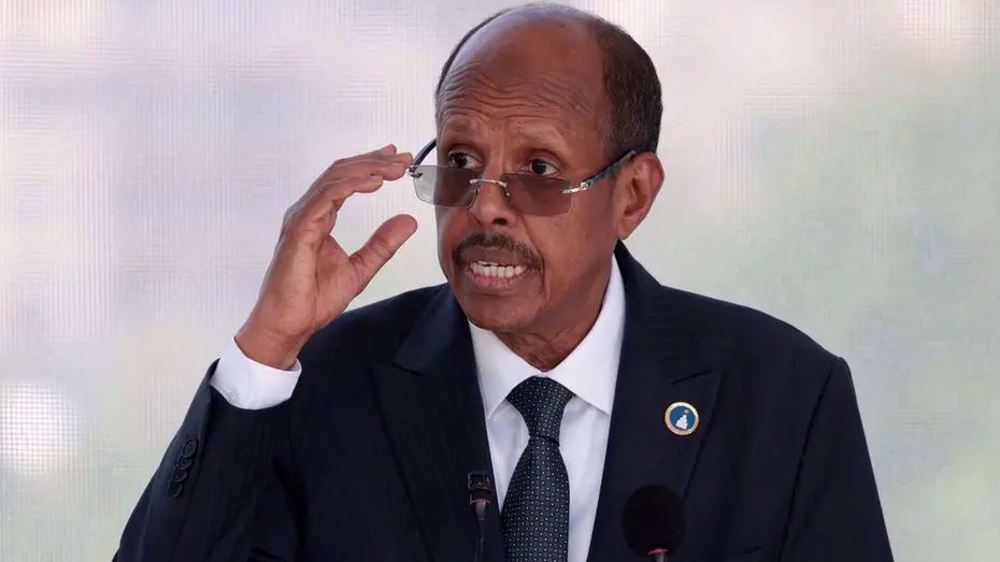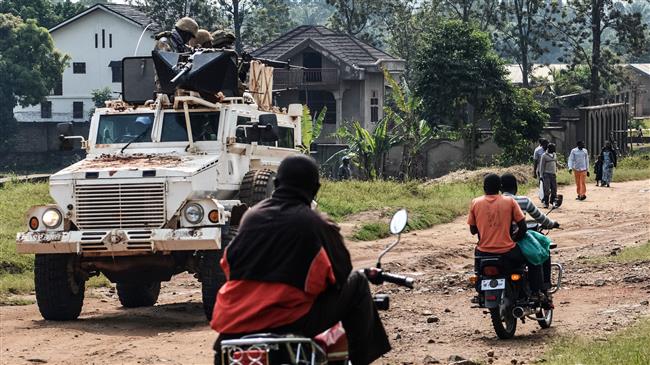57,000 people flee violence in DR Congo to Uganda, UNHCR says
The United Nations refugee agency says more than 57,000 people have fled violence in the eastern Democratic Republic of the Congo to Uganda this year.
The UNHCR said in a statement on Friday that most of the 57,000 displaced people were women and children.
UNHCR spokesman Babar Baloch told reporters in Geneva that the figure far exceeds the 44,000 refugees who entered Uganda through the entire 2017.
The UN agency said over 4,000 people from the provinces of Ituri and North Kivu entered Uganda between March 10 and 13.
According to the statement, the majority of the refugees are using the dangerous route of Lake Albert, traveling upon unsafe boats from Ituri, which has been wracked by conflict between the Hema and Lendu communities.
Tensions between Hema cattle herders and Lendu farmers have largely laid dormant since a 1998-2003 war, which claimed the lives of thousands, but have flared again in recent months because of disputes over land.
More than 100 people have been killed since the violence erupted in Ituri in mid-December. The unrest has also forced 200,000 people to flee their homes.
The UN agency further said on Friday that the struggles aid workers face in accessing violence-hit regions made it "difficult to offer a detailed picture of the situation." It, however, said “UNHCR has received chilling accounts of violence”, including rape and murder.
The agency also said it had stepped up measures to support survivors.
The DR Congo is suffering from growing insecurity. New conflicts are erupting as President Joseph Kabila struggles to maintain his grip on power after his constitutional term in office expired in December 2016.
Armed groups are active in the eastern provinces of North Kivu and South Kivu, which border Uganda, Rwanda, Burundi and Tanzania.
Violence has also erupted in the central region of Kasai. There, a tribal chieftain known as the Kamwina Nsapu, who rebelled against Kabila's regime, was murdered in September 2016.
Vance says 'skeptic of military intervention' after progress in Iran talks
VIDEO | Third round of Iran-US nuclear talks concludes in Geneva
Geneva talks: Iran signals firm resolve, rejects US pressure, proceeds with cautious optimism
Iran urges Afghanistan, Pakistan to hold dialogue amid new escalation
US will suffer ‘massive losses’ in case of new war: Iraq's Kata’ib Hezbollah
Normalization increases cost of defeating Israel, Yemeni leader warns
Activists announce 'Freedom and Sumud Flotilla' to challenge Gaza blockade
VIDEO | Rome residents demand end to ties with Israeli firms















 This makes it easy to access the Press TV website
This makes it easy to access the Press TV website